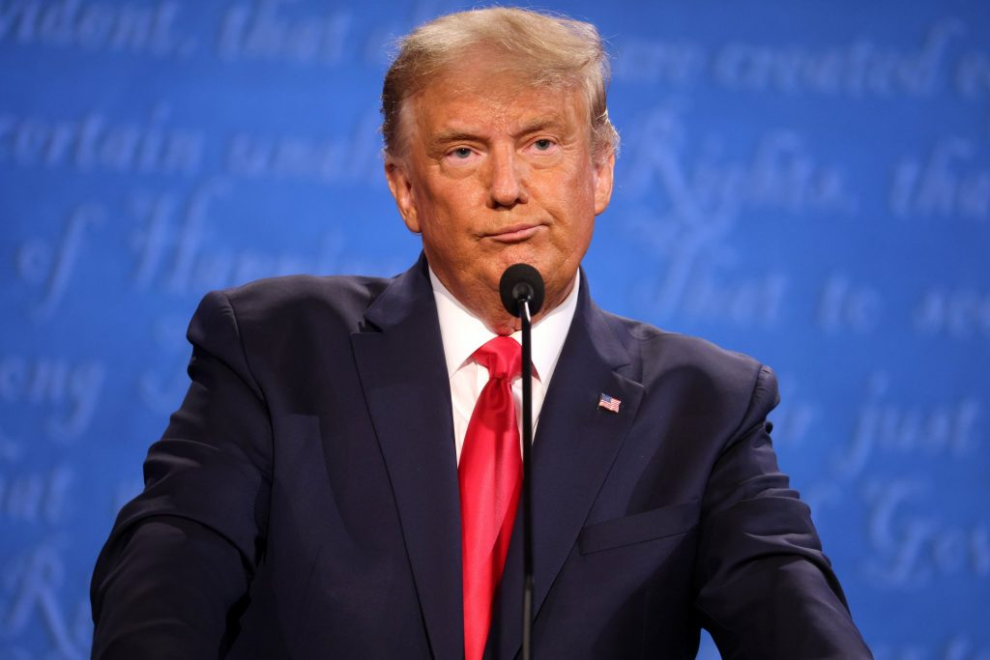SOME of the UK’s key industries could be significantly impacted as US President Donald Trump prepares to unveil sweeping new tariffs today at 9pm(BST).
Trump’s latest trade measures, dubbed ‘Liberation Day’ by the president himself, are expected to apply to all nations, including the UK. Despite efforts by British ministers to secure an exemption, Labour leader Sir Keir Starmer has admitted that no such agreement has been reached.
“The likelihood is there will be tariffs. Nobody welcomes that,” the prime minister said. “We are obviously working with the sectors most impacted at pace on that. Nobody wants to see a trade war, but I have to act in the national interest,” he told reporters.
While Sir Keir has stated that “all options remain on the table,” he has so far refrained from announcing retaliatory tariffs against the US, unlike other nations. The European Union (EU) has already responded to the initial round of tariffs by imposing duties on €26 billion (£22 billion) worth of US goods, vowing to deliver a “timely, robust, and calibrated” response to the forthcoming measures.
The full scope of the tariffs is yet to be disclosed, but Trump’s administration has signalled what to expect. The new measures will expand upon the 25 per cent tariff on steel and aluminium imports that has been in place since March. Additionally, a long-delayed 25 per cent tariff on auto parts, affecting imports from China and neighbouring countries, will now take effect from April.

The Trump administration is also understood to have drawn up hundreds of reciprocal tariffs, tailored for each country based on factors such as existing tariffs, trade balances, and VAT rates. These tariffs are set to be formally announced at 9pm BST (4pm local time) during a press conference at the White House Rose Garden.
Impact on the UK
Steel and Aluminium
The 25 per cent tariff on steel and aluminium imports has already been in force since mid-March. While it is still too early to assess the long-term impact on the UK economy, economists predict it could affect UK products worth hundreds of millions of pounds, making goods such as cars, cans, and tin foil more expensive.
The UK’s steel industry is already under pressure due to an oversupply in the global market, largely driven by China’s large-scale production. In response, Trump has placed even higher tariffs of 45 per cent on Chinese steel.
Industry leaders have criticised the government’s decision not to retaliate. Gareth Stace, Director-General of UK Steel, called the move by the Trump administration “hugely disappointing” and urged ministers to take “decisive action” to protect the sector.
“These tariffs couldn’t come at a worse time for the UK steel industry, as we battle with high energy costs and subdued demand at home, against an oversupplied and increasingly protectionist global landscape,” he said.
The US is the UK steel industry’s second-largest export market after the EU.
Auto Parts
President Trump has confirmed that a 25 per cent import tax will be introduced on all cars imported to the US, dealing a significant blow to the UK’s automotive industry.
Last year, 16.9 per cent of UK car exports were destined for the US, totalling more than 101,000 units and worth £7.6 billion.
Russ Mould, Investment Director at AJ Bell, warned that the tariffs come at “a very difficult time for the industry” as UK car production fell by 12 per cent in February compared to the previous year.
“Consumer confidence is on edge, we know it’s a highly competitive market, and even electric vehicles aren’t perhaps quite selling as quickly as hoped,” he said.
The new tariffs are expected to hit British brand Jaguar Land Rover particularly hard, as 100 per cent of its cars sold in the US are manufactured abroad. The company’s Defender and Range Rover models are especially popular in the US, making it a crucial market.
For the Labour government, the tariffs present a significant challenge as it seeks to boost economic growth. Business Secretary Jonathan Reynolds has stated that reversing the tariffs is a key objective.
“I can’t give a timescale on that but, of course, the longer we don’t have a potential resolution, the more we will have to consider our own position in relation to that,” Mr Reynolds said, hinting at potential retaliatory tariffs.
Reciprocal Tariffs
Focusing on what it calls ‘unfairness’ in international trade agreements, the Trump administration has vowed to introduce reciprocal tariffs that will vary by country.
Initially, reports suggested these tariffs would apply only to the US’s 10 to 15 largest trading partners. However, Trump dismissed this as a “rumour,” stating that “all countries” would be affected. His comments have fuelled economic uncertainty, contributing to the US stock market’s worst monthly performance since December 2022.
The methodology behind these tariffs remains unclear, particularly concerning the UK. The British government maintains that the UK runs a trade surplus with the US, meaning it exports more than it imports. However, US officials argue the opposite, citing differences in how services trade is measured.
While the US is the UK’s largest individual trading partner, the UK exports more goods to the EU overall. In the 12 months leading up to November, the UK exported £57 billion worth of goods to the US, compared to £175 billion to the EU.
One key issue raised by the Trump administration is the perceived impact of value-added tax (VAT). The UK’s VAT rate stands at 20 per cent and applies to most goods and services. By contrast, the US does not have a nationwide VAT, with state-level sales taxes ranging from 5 to 10 per cent.
Some economists speculate that the US may impose a reciprocal 20 per cent tariff on UK goods to offset VAT-related discrepancies. However, as VAT is levied at the consumer level rather than on international trade, its direct impact on trade costs remains debatable.
As the world awaits Trump’s official announcement, industries across the UK are bracing for the economic fallout of these sweeping tariffs.















